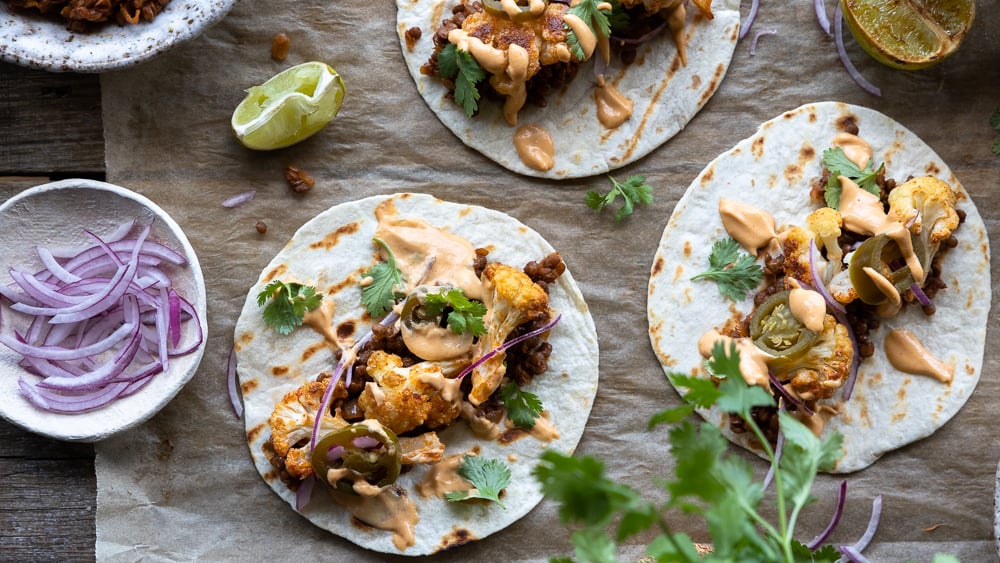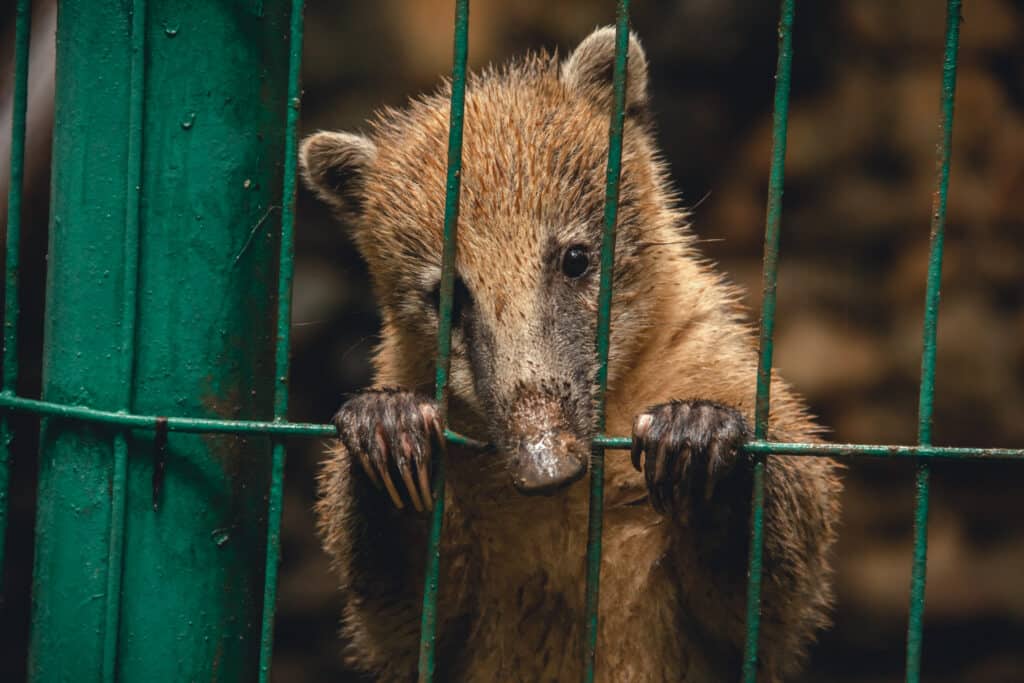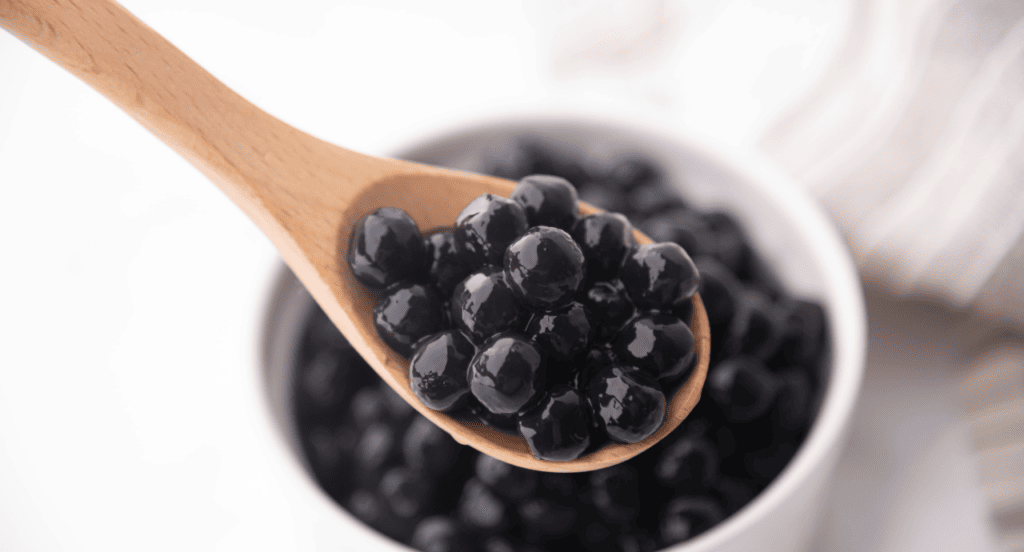Bread. It’s a staple in many diets and can be found in almost every grocery store. But is bread vegan?
The answer to that question isn’t always straightforward as there are different types of bread and different ways of making it.
In this post, I’ll cover the basics of bread-making and help you determine whether your favourite type is vegan or not.
Can vegans eat bread?
Yes, vegans can eat bread. At its core, a basic bread recipe contains just four simple ingredients: flour, water, salt, and yeast — all of which are vegan-friendly.
- Flour is simply a mixture of ground grains, making it entirely plant-based.
- Water is an animal-free substance found in any natural body of water worldwide.
- Salt is another common and benign ingredient derived from seawater or the earth.
- Yeast is a type of microscopic fungus used to help bread rise — a process that doesn’t involve any animal products whatsoever.
So at its most basic level, bread is entirely vegan and can be enjoyed by everyone regardless of their food choices.
However, while the fundamentals of breadmaking are vegan, many loaves contain a bunch of animal-derived “enhancements”. These include ingredients like eggs, milk, butter, buttercream and honey, which are often used to help improve the consistency of the dough and give bread its distinctive flavour.
Additionally, specific bread may contain animal-derived enzymes used for leavening or stabilising agents, including sodium caseinate. Some bread may use calcium or vitamin D derived from animal sources to help strengthen the gluten structure.
Several ingredients are frequently added to modern bread that don’t make it vegan-friendly. But by choosing bread made with plant-based ingredients instead, it’s possible to enjoy a delicious and nutritious meal without compromising your vegan choices.
Reviewing the vegan-friendliness of typical bread types
To make life easier for you, I’m going to break down whether your favourite types of bread are likely to be vegan or not.
White bread
Typical pre-sliced white bread found in supermarkets tends to be vegan-friendly, as it’s made from a combination of white flour, water, yeast, and often preservatives and stabilisers to keep it shelf-ready.

This combination helps to produce a soft, fluffy texture that is ideal for sandwiches and other types of light, portable meals.
One thing to note about white bread can sometimes contain butter or milk, so it may not be vegan-friendly. However, there are vegan versions of white bread available at most supermarkets.
Conclusion: usually vegan
Wheat (wholemeal) bread
Thanks to its superior nutritional benefits, wheat, also known as wholemeal bread, is a popular alternative to white bread. Like white bread, wheat bread contains the same essential ingredients: flour, water, yeast, and salt.
However, the primary difference lies in the type of flour used. While white bread is typically made with refined all-purpose flour, wheat bread is made with whole wheat flour instead.
Of course, not all wheat bread is created equal. Many brands add other ingredients like honey for sweetness or eggs for leavening and protein.
Conclusion: usually vegan
Multigrain bread
Multigrain bread is made with different grains, making it a more nutrient-dense option than white or wheat bread.
Some common grains that may be used include oats, barley, rye, and quinoa. The use of multiple grains helps add both texture and flavour to the bread.
Like wheat bread, multigrain varieties often add additional ingredients like eggs or honey. However, there are plenty of vegan-friendly options available on the market.
Conclusion: usually vegan
Sourdough
Sourdough is made by first creating a starter culture, a mixture of flour and water that ferments and develops natural yeasts. This sourdough starter is added to a basic bread dough and some salt and liquid to create the final loaf.

Sourdough is usually vegan-friendly, as there are very few ingredients in the starter culture, and none of them are animal-derived. However, variations on sourdough can contain eggs, milk, butter or honey.
It’s generally easy to find vegan-friendly sourdough bread at most bakeries. If you’re unsure, simply ask the person behind the counter. They should be able to point you in the right direction.
Conclusion: usually vegan
Brioche
Brioche is bread made with eggs, milk, and butter. This makes it decidedly less vegan-friendly.
While adding these ingredients helps create a rich and fluffy texture, it also means that brioche is best avoided if you’re following a vegan diet.
Conclusion: not vegan
Challah
Challah is a traditional Jewish bread often made for religious holidays like Passover or Shabbat. It’s made with water, flour, yeast, eggs, and sugar.

Eggs give challah its distinctive golden colour and slightly sweet flavour. While some egg-free versions of challah are available, these are generally not as common as the traditional version.
Conclusion: not vegan
Pita
Pita is a type of flatbread common in Middle Eastern and Mediterranean cuisine. It’s made with water, flour, yeast, and salt.
While pita bread is usually vegan-friendly, it’s important to note that some brands add milk or butter to their recipe. So be sure to check the label before purchasing.
Conclusion: usually vegan
Focaccia
Focaccia is an Italian flatbread that often contains olives, herbs, and other flavourful toppings. The dough is made with water, flour, yeast, and salt.

Many focaccia recipes also call for olive oil, which helps to create a crispy outer crust. While focaccia is usually vegan, some versions may contain cheese or other animal-derived toppings.
Conclusion: usually vegan
Rye bread
Rye bread is a hearty, dense bread typically made with rye flour, water, and salt. Depending on the recipe, other ingredients may be added, such as yeast, honey or molasses for flavour, and seasonings like caraway or cumin.
However, rye bread might also contain other non-vegan ingredients like eggs or dairy products, depending on the particular brand you purchase.
Overall, though, rye bread is a delicious and nutritious option for vegan diners looking for something satisfying and savoury.
Conclusion: usually vegan
Baguette
Baguettes are French bread typically made with wheat flour, water, salt, and yeast. While this basic recipe is vegan-friendly, some bakeries may add milk or butter to their dough for extra richness.

If you’re unsure whether or not the baguette you’re buying is vegan, it’s always best to ask the person behind the counter. They should be able to tell you whether or not there are any animal ingredients in the bread.
Conclusion: usually vegan
Bagels
Bagels are a type of yeasted bread that is boiled before being baked. This gives them their characteristic chewy texture. Bagels are typically round with holes in the centre, though they come in many varieties.

While plain bagels are usually vegan, those flavoured or containing toppings are often not. For example, bagels filled with cream cheese or have a coating of eggs or ham aren’t vegan. But you can still enjoy the plain, sesame, and poppy seed bagels with confidence.
Conclusion: usually vegan
Naan
Naan is a type of leavened flatbread that originates from India. It’s traditionally made with white flour, yeast, salt, yoghurt, and ghee (clarified butter).
While naan bread is delicious, it’s not typically vegan-friendly due to the inclusion of yoghurt and ghee. However, you can sometimes find vegan versions of naan at specialty stores, online, or it’s easy enough to make homemade naan.

If you’re eating dining out for Indian food, see if they have Roti, another type of flatbread, which is usually vegan.
Conclusion: not vegan
Ciabatta
Ciabatta is Italian bread with a chewy texture and large, gaping holes. The dough is made with flour, water, yeast, and salt.
Olive oil is also often added to the dough, which helps to create a crispy outer crust. While ciabatta is usually vegan, some recipes may call for milk or other animal-derived ingredients.
As always, it’s best to check the ingredients list before purchasing or making ciabatta at home.
Conclusion: usually vegan
Cornbread
Cornbread is a quick bread made with cornmeal, flour, eggs, and milk. It’s typically sweetened with sugar or honey and flavoured with salt and baking powder is added for a lift in the bread.
While this classic recipe is not vegan-friendly, it’s easy to make a vegan version at home. Simply substitute the eggs for a flaxseed or chia egg and use plant-based milk instead of dairy milk.
You can also find vegan cornbread mixes online or at some health food stores.
Conclusion: not vegan
Soda bread
Soda bread is a type of unleavened bread that gets its name because it’s made with baking soda (also known as bicarbonate of soda) instead of yeast.
This gives the bread a slightly different texture and flavour than other types of bread. Soda bread is usually made with flour, salt, baking soda, and buttermilk.
As you might expect, this classic recipe is not vegan-friendly. However, it’s easy enough to make your own vegan version at home by substituting the buttermilk for plant-based milk and adding a little vinegar or lemon juice.
Conclusion: not vegan
Tortilla
A tortilla is a type of unleavened flatbread made with wheat or cornflour. Water, salt, and fat are also added to the dough to help create a soft, pliable texture.

Tortillas are typically thin and round, and they can be either soft or crispy. While most tortillas are vegan, those containing lard (pig fat) are not.
Conclusion: usually vegan
Spelt bread
Spelt bread is a type of whole grain bread made with spelt flour. Spelt is an ancient grain that is related to wheat. It’s a good source of fibre and protein, and it has a nutty flavour.
Like other types of bread, spelt bread can be either vegan or non-vegan, depending on the ingredients used. Some recipes may use honey or other animal-derived products.
Conclusion: usually vegan
Is bread vegan? Final thoughts
As you can see, the answer to this question isn’t straightforward. Whether or not bread is vegan depends on the type of bread and the ingredients used. In general, most types of bread are vegan-friendly, except for naan, brioche, cornbread, and challah.
If you’re ever unsure whether a particular type of bread is vegan, check the ingredients list before purchasing or consuming it. And if you’re looking for a delicious vegan-friendly bread recipe, check out the many awesome vegan food blogs that will likely have a recipe for you.
I’m curious. What’s your favourite vegan-friendly bread? Let me know in the comments below.






Would you say pretzels are usually vegan too? Do you know if there’s anything to look out for (other than toppings or coatings) when it comes to soft baked pretzels? Thanks so much x
Hi Mel, from what I can see, pretzels often have butter and sometimes eggs in the recipe, so you’ll want to double-check. I’m grateful to have some friends in town who make mouthwatering vegan pretzels 🙂
I like Dave’s organic breads and buns and vegan pretzel rolls. Most bagels are vegan. When I ask bagel shops for the ingredients in their bagels, I always get the same answer: flour, salt, yeast, water and sometimes sugar (which I know is not always technically vegan). Obviously, egg bagels are not vegan, but the plain, sesame, and poopy seed bagels from all of the 20+ bagel shops I have been to are vegan. In fact, Dunkin Donuts and Panera bagels are vegan as well. Please pass me the vegan cream cheese.
You’re right about bagels (they’re not as popular in Australia). Also, good point about sugar. I’m glad you can find plenty of vegan-friendly bread options in your area. Thanks for sharing!